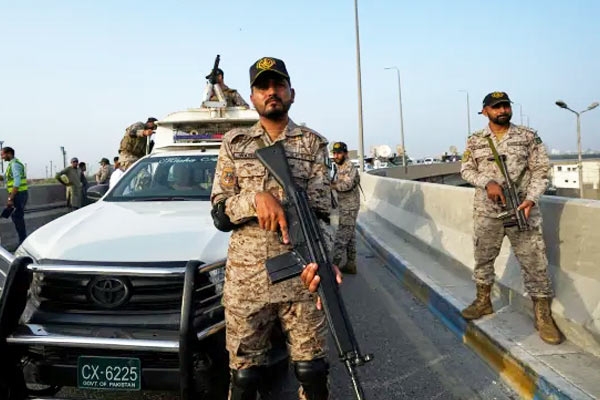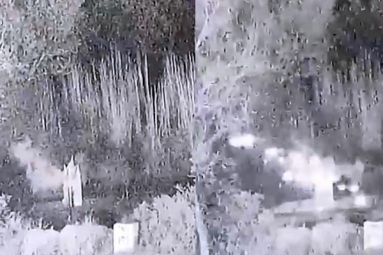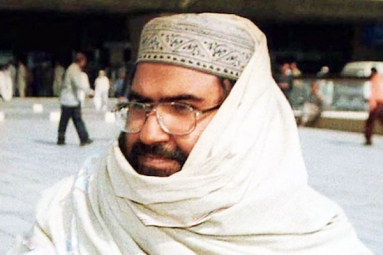
(Image source from: AP)
As tensions ease following a sequence of provocations from Pakistan and subsequent military actions from India during Operation Sindoor, which aimed to target terrorists and their supporters following the Pahalgam attack linked to Pakistan, attention is now directed towards the events on the day of the significant ceasefire announcement. On that particular day, statements were issued by four nations: the United States, Pakistan, India, and a later contribution from China. What has sparked interest is that each country presents a differing narrative. It is an established fact that the Pakistani Director General of Military Operations (DGMO) did indeed make a phone call to his Indian counterpart, requesting an immediate cessation of hostilities. However, the US and China appear to have their own agendas, while Pakistan seems keen to cultivate a narrative that would benefit both the government in Islamabad and the military establishment in Rawalpindi.
Donald Trump, who has positioned himself as a champion of global peace by intervening in conflicts such as Russia-Ukraine and the Israel-Iran dispute regarding Hamas in Gaza, was the first to announce that it was his administration which had "brokered" the ceasefire—an assertion that India has chosen to distance itself from. The unexpected hastiness with which President Trump made this declaration was surprising. He quickly took to his social media platform, Truth Social, proclaiming, "After a long night of talks mediated by the United States, I am pleased to announce that India and Pakistan have agreed to a FULL AND IMMEDIATE CEASEFIRE. Congratulations to both countries." He further emphasized that this decision showcased "common sense and great intelligence" from both nations.
On May 9, while communication lines were buzzing between Washington, Islamabad, and New Delhi, Beijing’s was surprisingly inactive. This situation reportedly displeased China, which Pakistan regards as its "all-weather ally". Trump's proclamation and Washington's claims of mediating the ceasefire seem to have infuriated Beijing, which also aspires to act as a global peace broker. According to sources within defense circles, China was allegedly irritated with Islamabad for choosing to engage with Washington during a time of crisis rather than reaching out to Beijing, which considers South Asia to fall within its area of influence. While NDTV cannot authenticate these claims, a factual timeline of the events is provided below.
Subsequently, Beijing reached out to Islamabad, after which, according to the sequence of events, Pakistan ignored the ceasefire announced by Trump just hours after its agreement, although this disregard was only temporary. As Pakistani drones breached Indian airspace in Jammu and Kashmir, Punjab, and Gujarat, Pakistan's foreign office issued a statement regarding discussions with China. The timing of this announcement, which emphasized Beijing's support for Islamabad, raised eyebrows within diplomatic circles. Shortly thereafter, as drone activity from Pakistan and Pakistan-occupied Kashmir intensified, China's foreign ministry released a statement indicating that Foreign Minister Wang Yi had spoken with India’s National Security Adviser Ajit Doval.
The remarks primarily highlighted the statements made by the Chinese foreign minister, only briefly addressing comments attributed to Mr. Doval. New Delhi has yet to issue a response to the statement released from Beijing. Following the dissemination of these remarks, which indicated China's engagement, there was a noticeable halt in drone incursions from Pakistan over the Line of Control and the International Border. Some defense analysts interpreted this development as a gesture aimed at appeasing Beijing.
Two days later, China's foreign ministry issued a further statement expressing a desire for India and Pakistan to reinforce and sustain the ceasefire momentum, advocating for the avoidance of additional conflict, effective resolution of differences through dialogue and negotiation, and a return to a path towards political resolution. The ministry also mentioned that China would maintain communication with both Islamabad and New Delhi, working towards retaining "peace and stability in the region."
Beijing attributed the ceasefire to its diplomatic efforts, asserting that discussions between Chinese foreign minister Wang Yi, Ishaq Dar, and Ajit Doval were instrumental in "facilitating de-escalation and establishing a complete and enduring ceasefire."
Pakistan, astonished by the scale, precision, and effectiveness of India's military strikes against its airbases, released two statements on the evening the ceasefire was announced: one in response to President Trump’s social media post and another purportedly at the request of Beijing. Shortly after President Trump's post on Truth Social, Pakistan’s foreign minister, Ishaq Dar, announced on X that "Pakistan and India have agreed to a ceasefire effective immediately. Pakistan has consistently pursued peace and security in the region, without compromising its sovereignty and territorial integrity!"
However, Pakistan breached the ceasefire a few hours later, contradicting its own commitment while simultaneously issuing a statement regarding a phone call from Beijing. The statement indicated that Mr. Dar updated the Chinese foreign minister on the regional situation and the recent military exchanges between India and Pakistan following a terrorist incident in Pahalgam, Jammu and Kashmir. The Chinese foreign minister "acknowledged Pakistan's restraint and commended its responsible response during difficult circumstances," while Wang Yi "reiterated that China, as Pakistan's steadfast Strategic Cooperative Partner and loyal friend, will continue to support Pakistan in safeguarding its sovereignty, territorial integrity, and national independence."
Shortly thereafter, the incursion of Pakistani drones ceased, contributing to the establishment of the ceasefire. Concurrently, India's foreign secretary, addressing the recent airspace violations during a press briefing, issued a stern warning to Islamabad that India would respond to Pakistan's actions "resolutely" and "effectively."
India has presented a clear account of events. It confirmed that numerous phone conversations had occurred between senior leaders in India and the United States. New Delhi emphasized that it communicated to Washington that its actions were merely reactions to Pakistan's military escalations, with Pahalgam marking the first escalation that led to Operation Sindoor. India conveyed that if Islamabad were to halt its actions, New Delhi would do the same.
Officials within the Trump administration were notified that any plea for a ceasefire must strictly occur through bilateral channels, necessitating that Islamabad initiate direct communication with New Delhi. Following this bilateral protocol, the Director General of Military Operations (DGMO) of Pakistan contacted his Indian counterpart to propose a ceasefire. In response, India's DGMO warned Pakistan against any further provocations while also outlining the necessary conditions for a ceasefire, which included a firm stance against terrorism. Pakistan was made aware that previous punitive diplomatic measures against it would continue to be enforced.
Subsequently, Foreign Secretary Vikaram Misri delivered a concise statement regarding India's acceptance of Pakistan's request for a ceasefire within the bilateral framework. He stated, “The DGMO of Pakistan reached out to the DGMO of India at 3:35 pm IST today. They mutually agreed that both parties would cease all military engagements on land, in the air, and at sea starting at 5 pm IST today. Instructions have been disseminated to implement this agreement, and both DGMOs are scheduled to reconvene on May 12 at noon (1200 hrs).”
Two days later, President Trump asserted that he had leveraged trade negotiations to persuade both Pakistan and India to agree to a ceasefire. He stated, “I told them, ‘Listen, we’re going to do a lot of trade with you both, so let’s put an end to this. If you want trade, stop the fighting. If you don’t stop, we won’t engage in trade.’” He further proclaimed, “No one has utilized trade as effectively as I have, and suddenly they agreed to halt their actions. They may have had various motivations, but trade played a significant role.”
In response to Trump's assertion, India's foreign ministry countered, stating, “Following the initiation of Operation Sindoor, US Vice President JD Vance contacted Prime Minister Narendra Modi on May 9. Secretary Rubio held discussions with Foreign Minister S Jaishankar on both May 8 and May 10, as well as with National Security Adviser Ajit Doval on May 10. None of these conversations mentioned trade.”



















